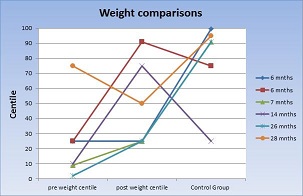Day 1 :
Keynote Forum
Anselme Sadiki
Children’s Home Society of Idaho, USA
Keynote: Changing the conversation about children and adolescent mental health and suicide prevention
Time : 09:30-10:15

Biography:
Anselme Sadiki is the Executive Director of Children’s Home Society of Idaho that operates the Warm Springs Counselling Centre in Boise, Idaho. The centre provides mental and behavioural healthcare services to children. He holds his Master’s degree in International Affairs from Columbia University and a Bachelor’s degree in Social work from Idaho State University. Prior to joining the Children’s Home, he has worked in various capacities with United Nations Development Programme for 12 years.
Abstract:
Mental illness can be detected at an early age with appropriate diagnosis, but stigma, lack of access to care prevent any successful intervention and recovery. The United States and many other countries in the world are experiencing an unprecedented high suicide death rates associated with epidemic drug overdose and mental illnesses among children and adolescent youths. The incidents of deaths involving any type of opioid overdose increased by more than 300 percent between 1999 and 2015; according to the Centres for Disease Control, more than 52,000 Americans have died of an overdose in 2015 of which, 33,000 were related to opioids. That is one death every 10 minute. Adolescent children and people with mental health disorders are at a greater risk of drug abuse than the general population. There needs to be an integrated approach to help improve the outcomes for many of those experiencing both mental illnesses and substance abuse. There are many obstacles to overcome to improve mental health care for children, chief among them, the stigma associated with psychiatric illness and addiction. To change the conversation how we approach the mental illnesses and how we treat people with mental illnesses, we first must remove the stigma we attach to mental illnesses. Stigma creates barriers to treatment for mental illnesses, and it appears to be worse in rural areas than larger cities. Stigma leads to more suicides because people are embarrassed, ashamed, or discouraged by cultural norms to ask for help. The goal of this presentation is be to encourage a dialogue and awareness on how to deal with psychiatric illnesses and addiction – seeing the person and not the illness. Unless we change the conversation and openly talk about mental illnesses as root causes of high rate of suicide we are witnessing, we will continue to see children, adolescent, men and women, and elderly taking their own lives.
Keynote Forum
Ada H Zohar
Ruppin Academic Center, Israel
Keynote: Picky eating in young children and its relationship to child and maternal characteristics
Time : 10:15-11:00

Biography:
Ada H Zohar completed her PhD at Hebrew University of Jerusalem, and a Post-Doctorate at Yale University School of Medicine. She is a faculty member at Ruppin Academic Center, where she headed the Clinical Psychology program and served as Dean of the School of Social and Community Sciences from 2009-2016. She is recently a Visiting Scientist at Washington University School of Medicine. She has published more than 70 papers in refereed journals and has been serving as an Editorial Board Member of PeerJ, as well as serving as an incidental Reviewer for many peer-reviewed journals and funding agencies.
Abstract:
Background: Picky eating is very common in children and usually transient. However in a minority of children it marks the begining of a lifetime of eating difficulties and disordered eating. The goals of the current study were to characterise children whose picky eating was persistent and potentially troubling.
Methods: At baseline over 1000 children mean age 3.4 were ascertained and followed over three years. The chidren's eating habits, the mothers feeding practices, the mothers perfectionism and trait anxiety, the childrens temperament, fearfeulness, ritual behavior, executive function and behavioral problems were all assessed via maternal report.
Results: At baseline, 18.6% of the children were picky eaters, with an over-representation of eldest children. At follow-up a subgroup of these children, about a quarter of those identified at baseline as picky eaters were still picky. The more persistent picky eaters had a shyer and more negatively emotional temperament, more ritualistic behavior and childhood fears, and they had more anxious mothers who were also more perfectionistic, more authoritarian, and more invested in controlling and monitoring their children's eating.
Conclusions: It seems as if picky eating persists more in children with a more anxious and shy temperament, more anxious and perfectionistic mothers, who are authortarian in imposing their authority. Interventions should target the maternal concern, and rigidity and help mothers take a more relaxed and playful attitude to feeding and eating.
Keynote Forum
Huda N Shaaban
American University of Kuwait, Kuwait
Keynote: Attention deficit hyperactivity disorder: the recipe of success
Time : 11:15-12:00

Biography:
Huda N Shaaban has completed her PhD in Educational Psychology with a specialization in Learning Disabilities. She has an intensive expertise in: Educational leadership, Learning Disabilities, Brain Based Learning, Dyslexia, ADHD, and Behavior Management. She has more than 22 years of experience in working with youngsters, youths and families. She served as an Educational Specialist, Program Coordinator, Educational Consultant, Researcher and Lecturer at Lebanese University as well as a School Director. She was assigned by the United Nations Development Program (UNDP) as an Expert Consultant in LD/ADHD to support the Kuwaiti Association for Learning Differences (KALD), during which she has planned and organized many national and international conferences, forums, training sessions, and initiated many public LD/ADHD awareness campaigns. Currently, she is the Assistant Director for the Disability Services at American University of Kuwait working directly with students in identifying accommodations resources and needs, to ensure them an equitable chance of success. She is a certified ADHD Coach for the International Coaching Federation (ICF) and is the founding member and President of the Learning Difficulties Professional Association in Kuwait (LDPA) that was founded on November 2002 in Kuwait.
Abstract:
ADHD is not a simple hyperactivity, nor a behavior disorder. It is a brain disorder that affects students’ executive functions. Executive functions proved to have an enormous impact on memory, awareness of time, being organized, getting started and following direction. Would these skills be a better predictor of academic success than IQ scores? Are executive functions the new IQ? What are these skills that ensure school success and impact learning and behavior? How to recognize these skills? How do all these skills enable an individual to effectively create a goal, form a plan, and self-monitor through tasks? In this session, we’ll try to identify how EF deficits are impacting ADHD students’ ability to successfully use classroom learning and what are the accommodations and strategies teachers may use to enhance them.
Keynote Forum
Zaininah Binti Mohd Zain
Hospital Kuala Lumpur, Malaysia
Keynote: Diamond in the rough
Time : 12:00-12:45

Biography:
A Public Health Consultant, she has been leading Hospital Kuala Lumpur (HKL), the largest public Hospital in Asia since 2006. HKL has 1,200 beds with 11,300 employees. She has demonstrated continuous growth, achievements, and impressive leadership in the management of complex activities within the healthcare industry. As a leader, she has solid business insight with the ability to ascertain and analyze needs, forecast goals, streamline operations, and envision new program concepts. Her excellent communication and interpersonal skills serve as the foundation to effectively network, collaborate, negotiate, and maintain positive partnerships with physicians, staff, external vendors and other organizations. She’s proficient in managing diverse range of departments, professionals, and programs through a complete understanding of the healthcare arena and integrated networks, adept at setting, expecting, and achieving high standards of quality. Actively involved in Research and Psychology is the subject of her passion.
Abstract:
Introduction: Most of the time clinicians tend to focus on the biological aspects of treatment. However, there is usually more than that meets the eye. At times cases of child abuse or neglect may be missed unless we look at root issues.
Case Report: A case of 12 year old girl with school refusal, poor academic performance, disruptive behaviour, and frequent tantrums and gullible was presented. Psychosocial issues identified include disorganized attachment, neglected childhood, incapable parents and provider, intellectual disability with poor socio-economic status and poor family support.
Discussion: Due to complex interactions between the symptoms elicited and the surrounding psychosocial issues, immediate interventions became warranted. Between a father who was incapable to look after her and her lower intellectual functioning, making her gullible and vulnerable to exploitation by others, further complicated by her behaviour of running away from home put her at imminent risk of various potential harm. Utilization of external multiagency services, hospital admission is decided based on clinical evaluation and impending risk of harm to self; psychosocial evaluation, identifying appropriate psychosocial intervention, liaising with the relevant agency to activate child protection service.
Conclusion: A holistic management plan encompasses a bio-psychosocial approach which should utilize numerous services including allied health professionals, social welfare services, educationist and police.
- Child Mental Health and Psychology|Adolescent Psychology|Psychopathology and Psychotherapy
Location: Best Western Premier Airporthotel Fontane Berlin @ v. Zieten

Chair
Huda N Shaaban
American University of Kuwait, Kuwait

Co-Chair
Anselme Sadiki
Childrens Home Society of Idaho, USA
Session Introduction
Clare Henn Haase
National University of Singapore, Singapore
Title: Skills Training in Affective and Interpersonal Regulation for Adolescents (STAIR-A) residing in a Singapore residential Trauma-Informed facility group home
Time : 12:45-13.10

Biography:
Clare Henn-Haase obtained her Psy.D. in Clinical Psychology from the Illinois School of Professional Psychology, USA, and is a U.S. licensed and certified clinical psychologist working in the field of trauma for over 15 years. Prior to her appointment at NUS, she conducted clinical research and clinical practice as an Assistant Professor at the University of California, San Francisco, USA and the San Francisco Veterans Affairs followed by an Assistant Professor and Clinical Director of the PTSD Research Program at New York University Medical Center. A member of the International Society for Traumatic Stress Studies (ISTSS) and American Psychological Association, she has over 25 peer-reviewed publications.
Abstract:
It is well-known that exposure to childhood trauma, specifically physical, sexual, and psychological abuse and neglect are high risk factors for the development of Posttraumatic StressDisorder (PTSD) in children and adolescents. Despite the high risk for PTSD and co-morbid psychopathology in trauma exposed children and adolescence in Singapore, there are few services providing trauma-informed care. Therefore, this study seeks to pilot the feasibility and effectiveness of a 12-session evidence-based group treatment using Skills Training for Affective and Interpersonal Regulation for adolescents (STAIR-A; Cloitre et al., 2005; Gudiño, et al., 2014) tailored to a Singaporean population of 36 trauma-exposed adolescents. The study will be run simultaneously while initiating a Trauma-Informed Care (TIC) within the residential home. Adolescents will be randomly assigned to either the (male or female group) STAIR-A or treatment as usual (TAU) control group. Assessments for PTSD and co-morbid depressive and anxiety symptoms will be conducted during 4 timepoints, pre-mid-post-treatment and one month follow-up. Analyses examining change will consist of Paired sample t-tests from pre- to post- treatment and Cohens d (Cohen, 1988) will provide the estimated effect size. The results will be discussed in light of initiating group treatment within a TIC program.
Nicolaas van der Lely
Reinier de Graaf Gasthuis, Netherlands
Title: Ten years of alcohol intoxications in adolescents and treatment in pediatric departments in Dutch hospitals
Time : 13:10-13:35

Biography:
Nicolaas van der Lely was born on August 13th, 1963 in Vlaardingen (Netherlands). From 1981 to 1988 he studied medicine at the Erasmus Medical Centre of Rotterdam (EMCR). During this period he also worked in Geneva, Paris and in Baltimore (USA). He had his clinical training in paediatrics in Maastricht (UMCM) and Amsterdam (AMC-EKZ). From 1995 to 1997 he was fellow in Pediatric Intensive Care in AMC EKZ. In 2002 he completed his thesis 'Emergency Care for Critically ill Children‘. Since 1997 he is working as a paediatrician at the Reinier de Graaf Hospital (RdGG) in Delft as chief of residents. Since 2000 he did a lot of research on alcohol and youth for which he is well known in the Netherlands. In December 2006 he opened a multidisciplinary alcohol outpatient clinic. Because of this he is well known and asked for by local, regional and national policy makers.
Abstract:
Aim: Alcohol intoxication in children and adolescents is a severe health concern in current pediatrics. In this longitudinal study, we monitored intake and treatment of 5,893 adolescents in Departments of Pediatrics in Dutch hospitals over the years 2007 to 2016.
Methods: From 2007 till 2016 we collected data on all adolescents (inclusion criteria: aged younger than 18 and with a positive BAC), treated by a pediatrician in all Dutch hospitals. Within the dutch pediatric surveillance system (NSCK), all pediatricians report adolescents and fill in a questionnaire, making use of a patient interview.
Results: In total 5,893 adolescents were treated, mainly (4,678; 88%) related to severe alcohol intoxication; mean age was 15.4 years, and 52% were boys. BAC level increased during this period (1.82 in 2007 and 2.01 in 2016), and reduced consciousness lasted from 2.24 hours in 2007 till 3.12 hours in 2016). 11.4% Of the adolescents with alcohol intoxication had simultaneous drug usage. The attitude of the parents changed during the years: in 2011 (first year of registration) 68% of the parents gave permission to their child to drink alcohol, in 2016 this decreased to only 19%.
Conclusions: Alcohol intoxication treatment remains an issue of importance. This dataset enables us to conduct longitudinal and interesting analyses on alcohol intoxication characteristics in youngsters, medical treatment, and events leading up to the intoxication.
Indra Boedjarath
Tilburg University, Netherlands
Title: Cultural aspects of suicidal behaviour among female migrant adolescents
Time : 14:35-15:00

Biography:
Indra Boedjarath has her expertise in mental health care of migrants in Netherland. As a Psychotherapist, she runs her own psychotherapy practice and works at an institution for children’s and adolescents’ mental health care. She always combined her clinical work with management, among others as the former Managing Director of Mikado, the Dutch center of expertise on transcultural health care. In addition to her work as a Psychotherapist, she is as an external PhD candidate working on a research: cultural aspects of suicidal behaviour. On regularly basis, she gives lectures, provides supervision, and speaks at international conferences on various cultural and social themes within the mental health care.
Abstract:
Statement of the Problem: Suicidal behaviour of female ethnic minority adolescents in several westerns countries appear to be disproportionately higher compared to native peers. The Western medical-psychiatric and psychological explanatory models (individual focused, linear cause-effect relationships between psychopathology and suicidal behaviour, and medicalization oriented) flaw the understanding of suicidal behaviour from social and cultural perspective. Despite the growing strand of studies aimed to identify cultural factors of suicidal behaviour, the actors’ perspective remains under researched. Alternatively, Bourdieu’s concept of habitus is proposed and subsequently expanded and specified it into ethnic habitus to capture the specific ethnic factors of in female migrant adolescents’ suicidal behaviour.
Methodological & Theoretical Orientation: The ethnic habitus of Dutch Hindustanis is explored to detect cultural elements which pertain to suicidal behaviour. This group is ideally suited to demonstrate the usefulness of the concept of ethnic habitus in suicidology. This group hails from Suriname (former Dutch colony), originating in India. They differ from western culture in terms of historical background, family relationships, cultural norms and values, religion, views on death and life, and most importantly, in the prevalence of suicidal behaviour. Both scientific literature and non-scientific reports and documents are explored, as well as several cultural expressions, such as oral history, proverbs and sayings, and popular songs and films.
Findings: Four major fields are found where Hindustani ethnic habitus is conveyed: gender specific and religious socialization, cultural images, and communication.
Conclusion & Significance: Ethnic habitus renders to examine the primary and secondary socialization that consciously and unconsciously contribute to suicidal behaviour. The existing Hindustani habitus contains different embodied cultural, historical and religious attitudes and belief about suicidal behaviour, which are internalized and transferred over time as an acceptable outlet. The concept seems suitable to apply on other cultural groups as well.
Silvina Diaz Bonino
Perinatal Parent Infant Mental Health Service- NELFT, UK
Title: Edible Triangle: A model of early intervention in feeding difficulties for the under threes.
Time : 15:00-15:25

Biography:
Silvina Diaz Bonino Is a child and adolescent psychoanalytic psychotherapist trained at the Tavistock Centre in London. She works in the NHS with adults and infants in perinatal psychology. She teaches Infant Observation at postgraduate level and has contributed to the journal Infant Observation as an author and as part of the editorial board. She has a longstanding interest and ongoing research in the feeding relationship between mother and baby.
Abstract:
This is a presentation on the further development in the conceptualization, implementation and evaluation of a model of early identification and intervention of feeding difficulties in the zero to three groups. “The Edible Triangle” (TET) is a model of short-term intervention informed by child development research, psychoanalytic infant observation and video analysis. This model fills a gap in public health provision and adjusts itself to be used by the workforce of integrated children’s services. We use a semi structured interview and apply experimental measures to process material. We developed an outcome measure to ascertain the infant’s change in collaborating with interpersonal interactions. Further research is needed to establish the effectiveness and feasibility of delivery this model at local and national level. A mixed-method design analyses parent and infant outcomes from seven clinical cases referred to the service. Data is extracted from video-recordings of treatment sessions at three times points: baseline, mid-treatment and end of treatment. A five-minute section from each video-recording is coded for Parental Embodied Mentalizing (PEM). Through the PEM coding process, we developed an Infant Receptivity (IR) scale. This scale assesses the infant’s receptivity in dyadic and triadic interactions and capacity for pre-symbolic and symbolic play in relation to the feeding and eating situation. Preliminary results reveal that TET improves PEM and IR. Results indicate the TET is a valuable therapeutic intervention that influences outcomes for mother and babies with feeding and eating difficulties. This data should contribute to the absence of feeding and transition to solids data in the public health arena for the 0-24 months’ group. This study contributes to the research asked for as per recommendations from the NICE Maternity and Child Nutrition and Antenatal and Postnatal Mental Health guidelines

The graph indicates that prior to admission; infant’s weight in centiles was present at both low and high ends. At the time of discharge, the graph, illustrates all weights coming closer to centre centiles. The control group does not seem representative of a normative group, thus indicating further need which has been identified but has not been referred to PIFC.
Anna Eremeeva
Arkhangelsk Psychoneurological Dispensary , Russian Federation
Title: Telepsychiatry for mental health of children and adolescents in the North
Time : 15:25-15:50

Biography:
Anna Eremeeva took postdoctoral study at the Department of Psychiatry and Clinical Psychology, the Northern State Medical University (Arkhangelsk, Russia). PhD thesis defense is planned the fall of 2017. She is the Deputy Chief Doctor on prevention and interagency cooperation of the Arkhangelsk Psychoneurological Dispensary and the Chief External Child Psychiatrist-Drug addiction Specialist of the Ministry of Health of the Arkhangelsk region. She is the author of 25 publications, including 3 articles published in the leading scientific journals added by the Supreme Certifying Commission of Russia into the list of editions recommended for publication of the thesis works materials.
Abstract:
Telepsychiatry is a modern organization of psychiatric service with help of information-communication technologies (ICT). This is important in North, considering its geographical and demographic features. In our project, psychiatric care rendered to children and adolescents is regarded as preventive. Sociological study was conducted among 546 specialists working in sphere of prevention in Arkhangelsk region in Russia. We assessed opinion on ways to improve prevention system for maintaining mental health. At the same time, we identified problems, main of which are availability of medical care and staffing problems. The proposal is to develop distance counseling in psychiatry. Given similarity of features of Northern Norway and Arkhangelsk region, as well as 25 years of experience in telemedicine in Norway, the Norwegian-Russian project has been under implementation since 2016. Main goal is to improve quality of prevention and treatment of people with mental disorders in remote areas by implementing ICT and practical solutions for e-health applications. Pilot areas have been selected, web-pages have been developed, skype-consultations have been given by doctors, psychologists, teachers. For first year project, positive feedback was received concerning implementation of e-health elements. Second year of project is devoted to network training, dissemination of experience in other areas. The acquired skills and knowledge, as well as encouraging positive results lead to fact that work will be continued as a part of our daily activities when the project is over. Basis for sustainable system for supporting remote areas will be activities of newly established "Distance Work Unit" at Arkhangelsk psychoneurological dispensary.
Maria Teresa Aydemir
Clinical Psychologist in private practice, Poland
Title: A therapeutic dilemma: Symbolic versus literal approach while working with adolescent patients, shown with the use of clinical examples.

Biography:
Currently, works in her own private practice in Katowice, Silesian Metropolis, the capital of the Upper Silesian Region in south-western Poland, EU. Currently, works in her own private practice in Katowice, Silesian Metropolis, the capital of the Upper Silesian Region in south-western Poland, EU.
Abstract:
The purpose of this presentation is to show psychotherapeutic work with adolescent patients, based on our clinical long-term psychotherapeutic experience. Many adolescent patients have presented significant emotional deficiencies resulting from the lack of enough parental care and support. In these situations, therapists often become 'substitute parents'. Our dilemma, as therapists, is how to keep a symbolic and analytical attitude facing these significant deficiencies and needs of our young patients. This dilemma is critical, as the period of adolescence is an especially important and difficult moment in one’s life. This time of a transition requires guidance from an adult figure helping them to enter early adulthood. The question is how far can or should the therapist fulfill this role? We will present two clinical examples of individual psychotherapy with an adolescent female and with a late adolescent male patient. We will share our thoughts and reflections regarding these cases and would like to invite you for an open discussion on this topic. Our presentation is dedicated especially to psychotherapists, psychologists, psychiatrists, counselors and other specialists working with adolescent clients and their families. We are going to deliver a 25-minute oral multi-media presentation in English.
Maria Barbara Lokaj
Individual Member of the International Association of Analytical Psychology (IAAP), Poland
Title: A therapeutic dilemma: Symbolic versus literal approach while working with adolescent patients, shown with the use of clinical examples.
Time : 15:50-16:15

Biography:
Certified Jungian Analyst, Clinical Psychologist from Poland, Silesian Metropoly, who is an Analytical Psychotherapist with 29 years of clinical experience in the field of psychotherapy.She is an Individual Member of the International Association for Analytical Psychology. She is also a Founder – Member and the Chair of the Ethics Committee of the Eastern and Central European Community of Jungian Analysts (ECECJA).She was a Co-founder of the first IAAP Developing Group in Poland and a Founder – Member of the Polish Association of Analytical Psychology (PTPA).
Abstract:
The purpose of this presentation is to show psychotherapeutic work with adolescent patients, based on our clinical long-term psychotherapeutic experience. Many adolescent patients have presented significant emotional deficiencies resulting from the lack of enough parental care and support. In these situations, therapists often become 'substitute parents'. Our dilemma, as therapists, is how to keep a symbolic and analytical attitude facing these significant deficiencies and needs of our young patients. This dilemma is critical, as the period of adolescence is an especially important and difficult moment in one’s life. This time of a transition requires guidance from an adult figure helping them to enter early adulthood. The question is how far can or should the therapist fulfill this role? We will present two clinical examples of individual psychotherapy with an adolescent female and with a late adolescent male patient. We will share our thoughts and reflections regarding these cases and would like to invite you for an open discussion on this topic. Our presentation is dedicated especially to psychotherapists, psychologists, psychiatrists, counselors and other specialists working with adolescent clients and their families. We are going to deliver a 25-minute oral multi-media presentation in English.
Haike Jacobs
Molendrift, Netherlands
Title: Theory and application of a relational model/approach in treatment of multi-problem families: renewal, efficiency in collaboration and effectiveness
Time : 16:15-16:40

Biography:
Haike Jacobs is currently working as a Senior Healthcare Psychologist at Molendrift Mental Health Care Services Provider, Netherlands. She completed her Bachelor degree in Education at Zwolle, Netherland; Master’s in Philosophy and History of Education from University of Groningen, Netherland and received her Mental Healthcare degree with a focus on child psychology. She works as a Behavioral Scientist in a deprived city area of Groningen city.
Abstract:
The responsibility for youth care in the Netherlands has been transferred from provincial governments to the municipalities. Due to this transformation, Dutch youth care has undergone a substantive renewal and focus on cooperation. One important innovation is the concept integral aid. Especially in families with complex problems integral aid provides more continuity because it is appropriate and coherent. From a variety of disciplines, care is better utilized and coordinated through ‘one family one plan’; care is given in different areas of life, there is better coordination among health care providers, and there is continuity in transitional phases. Further, a lot of attention is focused on client participation and joint decision making. This way, children, and families remain starting point of health care. Care will be provided as light and unobtrusive as possible, but immediately intensified when needed. Effective child healthcare is an essential part of the new, Dutch youth act. It strives to connect knowledge and practice. On the one hand, there is evidence based care and on the other hand, there is customized care. In addition to the evidence-based model, there is an important role for the relational model/approach. These models need reconciliation and become connected as they are two sides of the same medal. Relationships can be the cause of many problems, but they can contribute to the solution as well. Relations are very natural, even when they are ineffective, and have a major influence on the outcome. Negative relationships have an interrupting effect on emotions, which in turn affect cognitions and subsequently leads to disconnections, with a negative outcome. On the other hand, relationships can also influence cognitions in a positive way, which can result in more agency, connection and eventually in positive outcomes. In the Beijum district, a deprived area of Groningen, a unique combination of the evidence-based model and the relationship model/approach is being used.
- Workshop Session
Location: v. Zieten
Session Introduction
Mary Ellen McMonigle
La Salle University, USA
Title: Providing useful information to young adults concerning relationships development of the Relationship Evaluation and Analysis Link Revised (REAL-R)
Time : 16:55-17:55

Biography:
Mary Ellen McMonigle is a Licensed Psychologist and Assistant Professor of Psychology at La Salle University in USA. She completed her PhD in Educational Psychology and Master’s degree in Counseling Psychology. Her professional training includes “Dialectical behavior therapy - research-based treatment for disorders of emotional dysregulation”. She has 25 years of experience working with youth and young adults in clinical and college settings. Her teaching background involves mentoring undergraduate and graduate students. She serves as part-time Faculty at Philadelphia College of Osteopathic Medicine in Philadelphia.
Abstract:
Information concerning relationship attitudes and perceptions on intimacy, passion, and commitment is useful to individuals engaging in intimate relations or considering such an effort. Vaillant from the Harvard Study of Adult Development indicates that close relationships when we are young make an enormous difference in the quality of our lives. Erikson (1968) indicated that the periods of time between adolescence and adulthood involve stages concerning identity and love in his model of psychosocial development. Therefore, it is this group of individuals who are actively pursuing romantic connections. Providing feedback to young adults in this period of life may be advantageous for enhancing the quality of their relationships and the quality of their lives beyond young adulthood. The purpose of this study is to establish the psychometric properties regarding reliability of a newly revised instrument, the Relationship Evaluation and Analysis Link Revised (REAL-R), which can be utilized to assess strengths and weaknesses and identify factors related to intimate relationships. It may be used to provide valuable feedback to youth and young adults concerning key areas of relationship functioning. The REAL-R assists individuals with identifying their position on scales for seven relationship factors. The purpose of this workshop is to examine the literature concerning relationships and demonstrate and experience the REAL-R. Discussion will include providing youth with valuable information about themselves concerning key areas on relationship functioning.






